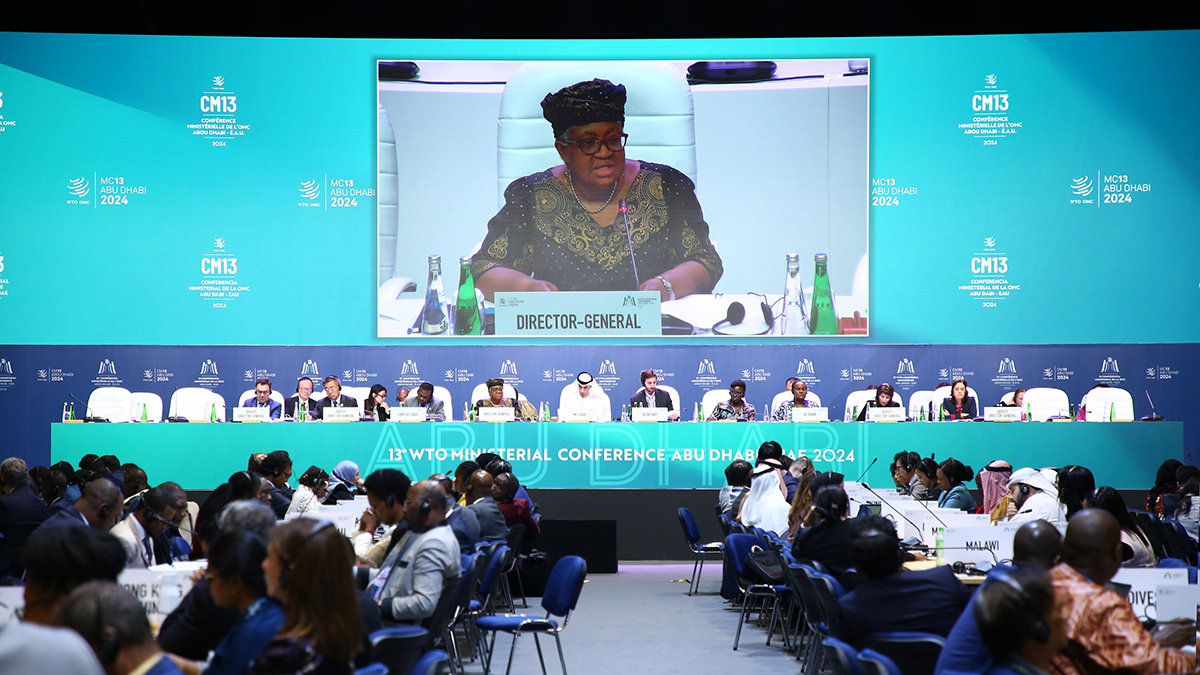
Abu Dhabi: India stressed the need for policy space for digital industrialisation at the Working Session on Work Programme on E-Commerce at the ongoing 13th WTO Ministerial Conference (MC13) here today.
MC13 has been extended by one day, until Friday, March 1, 2024, to facilitate outcomes on the main issues at stake. It was initially scheduled to close today at 8 pm Abu Dhabi time.
Following the consultations by WTO Director-General Ngozi Okonjo-Iweala with the MC13 Chair, Dr Thani bin Ahmed Al Zeyoudi and the Minister Facilitators, delegations were informed that MC13 will be extended, with the closing session scheduled to begin at 2 pm Abu Dhabi time.
Presenting its views on the importance of digital industrialization and how this emerging segment of the global economy holds the promise for economic development and prosperity for the developing countries including the Least Developed Countries (LDCs), India stressed that all policy options should be available for the WTO members to pursue for promoting digital industrialisation.
India emphasised that currently, a few firms based in developed countries dominate the global landscape of e-commerce and that there is a huge digital chasm between the developed and the developing countries which makes it challenging to increase the participation of developing countries in global E-commerce.
Reiterating that with the digital revolution still unfolding and with increasing diffusion of technologies such as additive manufacturing and 3D printing, data analytics, Artificial Intelligence, Internet-of-Things, India said there was a need for re-examination of the implications of the moratorium on customs duties on electronic transmissions, particularly for the developing countries and the LDCs.
India said that developing countries need to focus on improving their domestic physical and digital infrastructure, creating supportive policy and regulatory frameworks, and developing digital capabilities. India’s own digital transformation is powered by its “unshakeable belief” in innovation and its commitment to speedy implementation.
Through the Digital Public Infrastructure (DPI) approach, India is promoting innovation, democratising technology and fostering a competitive ecosystem for digital businesses. India pointed out how DPI spurred a national technology revolution in areas like commerce, credit, healthcare, payments, e-governance, and citizen services among others. India said its own experience shows that a broad thrust on digital infrastructure, skills, education and enabling policies has spurred rapid, population-scale digitalization.
– global bihari bureau





